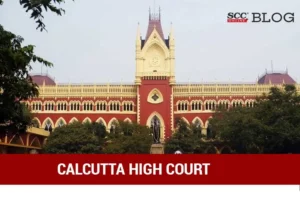Calcutta High Court: In an appeal challenging the reversal and acquittal by the Additional Sessions Judge in a criminal case under Section 138 of the Negotiable Instruments Act, 1881 (NI Act), a single-judge bench comprising of Rai Chattopadhyay,* J., found no irregularity or illegality in the first appellate court’s judgment, upholding the acquittal on appellant’s failure to prove the existence of legally enforceable debt, independent of considerations related to a money lending business or license.
Brief Facts
The instant matter pertains to an appeal against a judgment dated September 28-09-2012, related to a case under Section 138 of the NI Act, questioning the reversal and acquittal by the Additional Sessions Judge, Fast Track, Alipore in criminal appeal.
The complaint, registered in 2005, alleged that the appellant, a licensed money lender, advanced a loan of Rs. 3,30,000 to the respondents. A post-dated cheque was issued but dishonored, leading to legal proceedings. The Magistrate initially ruled in favor of the appellant, finding the cheque in discharge of a legally enforceable debt. The first appellate Court, however, reversed the judgment, emphasising the appellant’s failure to produce a money lender’s license.
Parties’ Contentions
The appellant/complainant contended that the first appellate Court erred in finding the appellant’s allegations affected by the Bengal Money Lenders Act, 1940 (the Act). It was argued that the first appellate Court misdirected itself by requiring the appellant to produce a money lender’s certificate, asserting that such a document is irrelevant in a Section 138 case.
The respondent asserted that the cheque, alleged to be dishonored, served as security rather than payment for a legally enforceable debt. The emphasis was placed on the non-supply/irregular service of the statutory notice, claiming that the absence of proper notice renders the proceedings under Section 138 illegal and not maintainable.
Law Point
-
Section 138 of the Negotiable Instruments Act, 1881, has provided for punishment regarding an offence of dishonour of cheque which was delivered in discharge in whole or in part of any debt or other liability and for the reasons of insufficiency etc. of the funds in the account of the drawer.
-
The statutory presumption as enumerated under Section 139 of the said Act in favour of the holder of the cheque is that the holder has received the same in due discharge of the whole or part of any debt or other liability.
Court’s Analysis and Decision
The Court referred to Bir Singh v. Mukesh Kumar, (2019) 4 SCC 197, where the Supreme Court held that “presumption is a rule of evidence and do not conflict with the presumption of innocence which requires the prosecution to prove it beyond reasonable doubt.” The Court observed that “the presumption under Section 139 of the Act is ‘rebuttable presumption’ in nature, since the accused issuing the cheque is at liberty to prove to the contrary.”
The Court examined the nature of the transaction, finding that the appellant’s evidence, including an acknowledgment and undertaking, doesn’t conclusively establish a legally enforceable debt. The Court reiterated that the burden of proving the existence of a legally enforceable debt lies with the appellant.
The Court rejected the argument that the appellant’s money lending business or license was essential, focusing on whether there was a legally enforceable debt and concluded that the appellant failed to discharge the initial burden of proving the debt’s existence.
The Court opined that the appellant failed to discharge the initial burden of proving a legally enforceable debt, rendering the presumption under Section 139 of the NI Act inapplicable. The Court, after thorough examination, upheld the impugned judgment, finding no irregularity or illegality. The appeal is dismissed without costs.
[Sajal Guha v. Amal Krishna Paul, C.R.A No. 741 of 2012, order dated 28-11-2023]
*Judgment by Justice Rai Chattopadhyay
Advocates who appeared in this case :
Ms. Devipriya Mitra, Counsel for the Petitioner
Mr. Sanjit Kr. Dan, Ms. Rajnandini Das, Counsel for the Respondents

